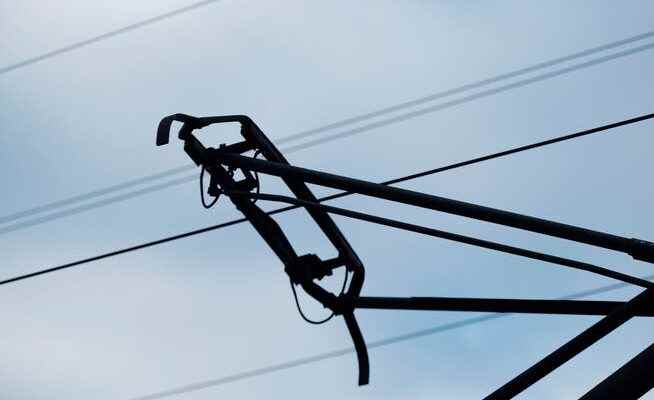The EU Commission wants to make international train connections easier by harmonizing approvals across Europe. For Switzerland, however, things are getting more complicated because of the bilateral problems.
Different technical systems are a disadvantage of rail in border traffic.
There were tumultuous scenes that are unusual for a Swiss railway. Italian cross-border commuters blocked a Bern-Lötschberg-Simplon-Bahn (BLS) train in Domodossola in September. They were protesting against the conditions in rail traffic to Brig. According to the local newspaper “Walliser Bote”, more than 2000 “frontaliers” commute by train to Upper Valais every day, mainly to work on construction sites. For them, the journey through the Simplon tunnel is the easiest way to Switzerland. However, BLS trains are regularly overcrowded at peak times. On the day in question, the situation came to a head because trains were also canceled.
The cross-border commuters from Italy get to feel the problems between Switzerland and the EU on a small scale. From the timetable change in December, the BLS wanted to use its new multiple units from Stadler Rail, which offer more space. However, journeys to Domodossola are not possible for the time being because approval in Italy has been delayed. The BLS attributes this to the failed framework agreement between Bern and Brussels.
The fact that the BLS requires a separate permit for journeys to Domodossola is new. So far, Switzerland has worked pragmatically with Italy in cross-border traffic, as it does with other neighboring countries. The route from Iselle to Domodossola is a special case: It is electrified with the Swiss electricity system, but the Italian operating company is responsible for the infrastructure. In an agreement, Bern and Rome have stipulated that rolling stock that is permitted in Switzerland can also automatically operate as far as Domodossola. Is Italy violating this now?
EU law takes precedence
The agreement on the Simplon route is independent of the framework agreement, says Michael Müller, spokesman for the Federal Office of Transport (BAV). In the EU member states, however, European law generally takes precedence over national regulations and international agreements. The EU has further developed its law with the fourth railway package and harmonized the approval procedures for rolling stock. In doing so, she wants to strengthen the rail sector in competition with the road. For cross-border journeys, it is a disadvantage if the railways require a separate permit for each country.
However, the reform now has the opposite effect on regional transport from Switzerland to neighboring countries. The approval of new rolling stock is becoming more complicated. The BLS also has to go through a procedure with the European Railway Agency in order to be able to use its multiple units as far as Domodossola. This has to do with the unresolved institutional issues between Bern and Brussels, including the dynamic transfer of rights and legal dispute resolution. The EU does not want to develop the bilateral agreements further without clarifying these issues.
As part of the bilateral agreements, Bern and Brussels concluded the overland transport agreement. However, Switzerland has not fully implemented the technical aspects of the fourth EU rail package. The EU therefore regards them as a third country, says BAV spokesman Müller. She is not ready to make the necessary adjustments to the land transport agreement because the institutional questions are open. The consequence is that the EU member states are no longer allowed to apply the existing agreements with Switzerland.
More bureaucracy
Switzerland has not only concluded such agreements with Italy, but also with France and Germany. The BAV is now trying to renegotiate this with the neighboring countries and the EU Commission. That’s laborious. Until now, the federal government has concluded agreements with the respective approval authorities. Switzerland now has to negotiate such agreements with the national ministries, says BAV spokesman Müller. Above all, however, the states in question would have to obtain a mandate from the EU Commission, which would also have to approve an agreement. It remains to be seen whether Brussels will agree in the end.
In other words, the EU can stall Switzerland if it wants to. However, pinpricks in cross-border regional traffic would also affect the neighboring countries. In recent years, Switzerland and Switzerland have invested heavily in the expansion of the international S-Bahn network, for example in the greater Geneva area or between Lombardy and Ticino. The fact that the BLS is not allowed to cross the border with its new trains for the time being does not only affect Swiss tourists who visit the well-known Saturday market in Domodossola. But also the Italian cross-border commuters who drive to work in Brig during the week.
Despite the rampant bureaucracy, the BLS wants to react unbureaucratically. Passengers from Bern now have to change trains in Brig. From there to Domodossola, three coupled multiple units are to be used from the December timetable change during peak periods. These offer significantly more seats compared to today. This makes rail operations more complex. But the BLS hopes things will improve for commuters.
